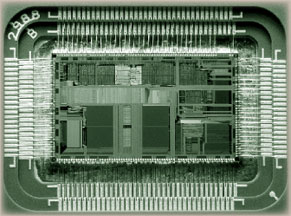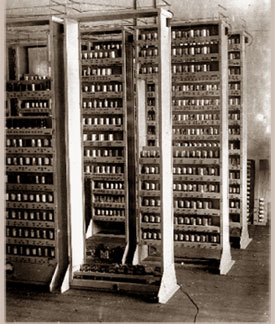
Twenty first century human being has become a skillful, talented and
wonderful innovator. Therefore the contemporary world is full of
advanced technology. Almost all the production lines, processing
procedures, manufacturing techniques have been automated.
That means human work have been made easy. What is the main cause? It
is the invasion of the COMPUTER. Its influence has more advantages than
disadvantages. There are the technical frauds happening in connection
with Computer Technology, but we cannot say, exactly computer is the
culprit.
 Nevertheless, from this article I’m presenting some simple facts
about computers and its functions as it is useful to you as we all deal
with computers in our day-to-day life. Nevertheless, from this article I’m presenting some simple facts
about computers and its functions as it is useful to you as we all deal
with computers in our day-to-day life.
What is a Computer?
A computer is a machine that manipulates data according to a list of
instructions.
Machine - A `machine’ is any given device that uses energy to perform
some activity.
`Data’ - In computer science, `data’ is anything in a form suitable
for use with a computer. Data is often distinguished from programs. A
program is a set of instructions that detail a task for the computer to
perform. In this sense, data is thus everything that is not programmed.
Code Instructions - Advices/steps given to a computer to fulfill a
specific task.
Although mechanical examples of computers have existed throughout the
history, the first modern computer was developed in the mid-20th century
(1940).
The first electronic computer was the size of a large room, consuming
as much power as several hundred modern personal computers (PC. Modern
computers based on tiny integrated circuits are millions to billions of
times more capable than the early machines, and occupy a fraction of the
space.
Simple computers are small enough to fit into a wristwatch, and can
be powered by a watch battery.
Personal computers in their various forms are icons of the
Information Age, what most people think of as a computer”, but the
embedded computers found in devices ranging from fighter aircraft to
industrial robots, digital cameras, and toys are the most numerous.
The ability to store and execute lists of instructions called
programs makes computers extremely versatile, distinguishing them from
calculators.
A Programs is Methodical set of Instructions given to a computer to
do specific tasks.
History of computing
The first use of the word “computer” was recorded in 1613, referring
to a person who carried out calculations, or computations, and the word
continued to be used in that sense until the middle of the 20th century.
From the end of the 19th century onwards though, the word began to take
on its more familiar meaning, describing a machine that carries out
computations.
The history of the modern computer begins with two separate
technologies automated calculation and programmability but no single
device was identified as the earliest computer, partly because of the
inconsistent application of that term.
Examples of early mechanical calculating devices include the
`abacus’, the `slide rule’ and arguably the `astrolabe’ and the `Antikythera’
`mechanism’ (which dates from about 150-100 BC). Hero of Alexandria (c.
10-70 AD) built a mechanical theater which performed a play lasting 10
minutes and was operated by a complex system of ropes and drums that was
considered to be a deciding factor of the mechanism performed which
actions. This is the essence of programmability.
The `castle clock’, an astronomical clock invented by Al-Jazari in
1206, is considered to be `the earliest programmable analog computer.’
It displayed the zodiac, the solar and lunar orbits, a crescent
moon-shaped pointer travelling across a gateway causing automatic doors
to open every hour, and five robotic musicians played music when struck
by levers operated by a camshaft attached to a water wheel. The length
of day and night could be re-programmed to compensate for the changing
lengths of day and night throughout the year.
The end of the Middle Ages saw a re-invigoration of European
mathematics and engineering. Wilhelm Schickard’s 1623 device was the
first of a number of mechanical calculators constructed by European
engineers, but none fit the modern definition of a computer, because
they could not be programmed.
All modern computers implement some form of stored-program
architecture, making it the single trait by which the word “computer” is
now defined.
 While the technologies used in computers have changed dramatically
since the first electronic, general-purpose computers of the 1940s, most
still use the von Neumann architecture. While the technologies used in computers have changed dramatically
since the first electronic, general-purpose computers of the 1940s, most
still use the von Neumann architecture.
Microprocessors are miniaturized devices that often implement stored
program CPUs. Computers using vacuum tubes as their electronic elements
were in use throughout the 1950s, but by the 1960s had been largely
replaced by transistor-based machines, which were smaller, faster, and
cheaper to produce, required less power, and were more reliable.
The first transistorized computer was demonstrated at the University
of Manchester in 1953.
In 1970s, integrated circuit technology and the subsequent creation
of microprocessors, such as the `Intel 4004’, further decreased the size
and cost and further increased speed and reliability of computers. By
the 1980s, computers became sufficiently small and cheap to replace
simple mechanical controls in domestic appliances such as washing
machines. The 1980s also witnessed home computers and the now ubiquitous
personal computer.
With the evolution of the Internet, personal computers are becoming
as common as the television and the telephone in the household. Modern
Smartphone is fully-programmable computers in their own right, and as of
2009 may well be the most common form of such computers in existence.
- `Tharindu Weerasinghe’
|

